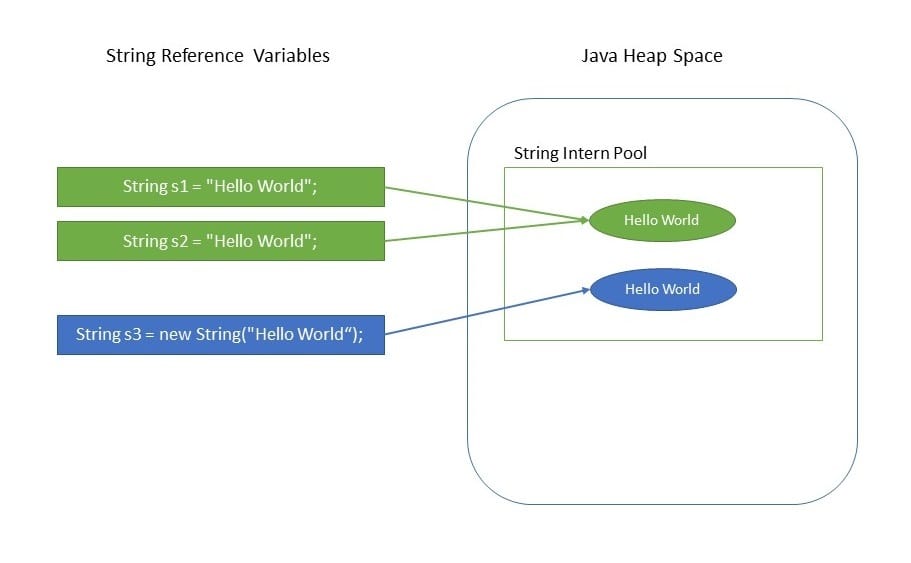Why Are Strings Immutable in Java? Enhancing Code Dependability
Why Are Strings Immutable in Java? Enhancing Code Dependability
Blog Article
Immutable Strings: A Key Component in Ensuring Data Consistency and Integrity
In the world of information monitoring, the importance of immutable strings can not be overemphasized. These constant series of personalities play a crucial function in supporting the honesty and precision of information within systems. By preserving a state of immutability, information uniformity is made certain, promoting a foundation of integrity whereupon vital procedures count. The principle of unalterable strings goes beyond plain technicality; it is a linchpin in the complex web of data administration. As we discover the benefits, execution strategies, and practical applications of immutable strings, a more clear image arises of their important nature in guarding the electronic landscape.
The Concept of Unalterable Strings
Unalterable strings, an essential principle in shows, describe strings that can not be changed when they are produced. Fundamentally, as soon as a string value is assigned, any kind of procedure that shows up to modify the string in fact produces a new string. This immutability guarantees information uniformity and integrity in applications, as it avoids unforeseen modifications to the original data.
Benefits in Information Uniformity

Information uniformity is essential in numerous elements of software program growth, including data source administration, multi-threaded settings, and dispersed systems (Why are strings immutable in Java?). Immutable strings add significantly to attaining this uniformity by avoiding information corruption because of simultaneous access. In situations where multiple processes or strings connect with the very same data simultaneously, unalterable strings work as a protect against race conditions and synchronization problems
Additionally, the immutability of strings streamlines debugging and testing procedures. With unalterable strings, developers can rely on that as soon as a string is set, it will certainly continue to be the same, making it less complicated to trace the source of errors and ensuring that test cases generate regular results. This dependability in information dealing with inevitably brings about much more secure and robust applications.

Implementing Immutable Strings
Making certain the immutability of strings needs a thoughtful strategy to their application in software program development. One key technique is to design string classes in a manner that stops alterations when a string object is created. By making strings unalterable, developers can improve information uniformity and reliability in their applications.
To execute unalterable strings properly, developers ought to prefer producing brand-new string things rather than customizing existing ones. This technique ensures that once a string is designated a value, it can not be transformed. Additionally, any kind of operation that appears to change the string needs to create a brand-new string with the wanted adjustments as opposed to altering the original.
Moreover, making use of immutable strings can streamline concurrency administration in multi-threaded settings. Given that immutable strings can not be altered after creation, they can be safely shared amongst numerous threads without the risk of information corruption.
Function in Integrity Assurance
In software application growth, the utilization of immutable strings plays a crucial function in making sure the integrity of data operations. Immutable strings, once developed, can not be modified, making certain that the information they represent why not try these out remains constant throughout the application's execution. This immutability residential property gives a degree of assurance that the information being processed will not be unintentionally altered, leading to unexpected end results or mistakes in the system.
By including unalterable strings into software program design, developers can enhance the reliability of their applications by minimizing the dangers linked with mutable data - Why are strings immutable in Java?. Immutable strings help in stopping data corruption or unintended alterations, which can be specifically crucial when handling sensitive information or when data honesty is extremely important
Additionally, the usage of immutable strings simplifies simultaneous handling, as multiple threads can safely access and share string data without the risk of one string modifying the content while one more reads it. This facet adds dramatically to the overall integrity of the software program click system, making certain predictable and constant behavior in data managing procedures.
Applications and System Combination
The seamless combination of immutable strings right into different applications and systems is pivotal for making sure robust information uniformity and integrity across diverse technical environments - Why are strings immutable in Java?. Immutable strings play a crucial duty in enhancing the integrity of information exchanges and interactions within complex software environments. By incorporating unalterable strings into applications, designers can mitigate the dangers connected with data meddling, unauthorized adjustments, and unintentional alterations, thus fortifying the total safety and security position of the system
In the context of system assimilation, immutable strings function as a foundational component for developing protected interaction channels and assisting in smooth data transfers between various components. Their unalterable nature makes certain that information transmitted between systems remains proven and unmodified, decreasing the likelihood of variances or mistakes that might jeopardize the stability of the whole system. Furthermore, immutable strings can enhance interoperability between diverse systems by supplying a standardized format for data depiction, allowing much more effective data processing and exchange protocols across interconnected platforms. By taking on unalterable strings in applications and system integration processes, organizations can fortify their data infrastructure and support the integrity and uniformity of their my explanation information assets.
Final Thought
In final thought, immutable strings play a crucial duty in maintaining information uniformity and reliability in numerous applications and system integrations. By ensuring that strings can not be transformed once produced, the honesty of data is preserved, lowering the danger of mistakes and variances. Carrying out unalterable strings can substantially boost the integrity of systems, ultimately bring about even more reliable and exact information processing.

Report this page